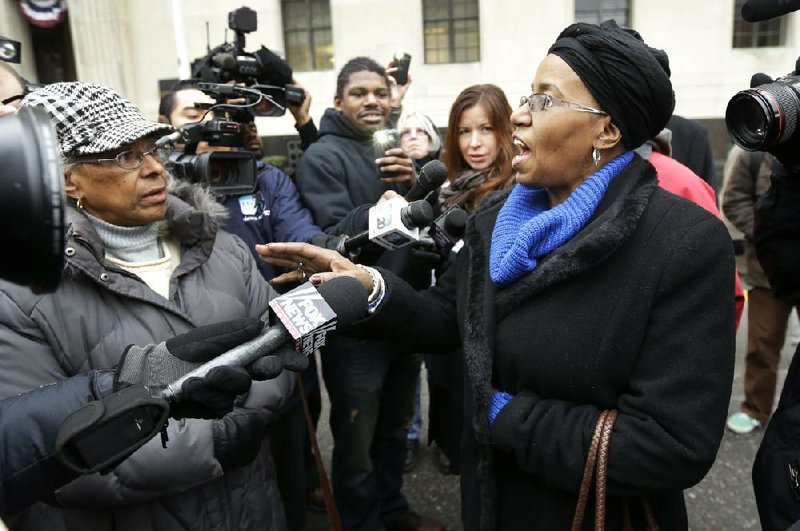DETROIT - Detroit is eligible to shed billions in debt in the largest U.S. public bankruptcy, a federal judge ruled Tuesday, while also finding that the public pensions could be reduced during reorganization despite a provision in the Michigan Constitution.
In ruling that Detroit was eligible to reorganize under federal bankruptcy law, Judge Steven Rhodes said the city met every test of insolvency, including failing to pay its debts and being unable to provide a minimum level of basic services to its 680,000 residents.
“This once proud and prosperous city can’t pay its debts,” the judge said. “It’s insolvent. It’s eligible for bankruptcy. But it also has an opportunity for a fresh start.”
Appeals were expected to be filed quickly. Bruce Babiarz, a spokesman for Detroit’s fire and police retirement system, which supports 8,500 retirees, said lawyers were reviewing the ruling and expected to file an appeal by the end of the week. But the case will continue to move forward, with the next step being the city filing a “plan of adjustment.” It is unclear, however, what parts of the judge’s ruling may be appealed.
Under the ruling, the vastly diminished city, once the nation’s fourth-largest and the cradle of the U.S. auto industry, will be allowed to search for a way to pay off some part of its debts and to restore essential services to tolerable levels under court supervision.
The goal, according to Kevyn Orr, an emergency manager appointed by the state of Michigan, is to emerge from court protection next year with a formal plan for starting over.
“Time is of the essence, and we will continue to move forward as quickly and efficiently as possible,” Orr said Tuesday.
In his ruling, Rhodes turned aside objections from unions, pension funds and retirees, which, like other creditors, could lose under any plan to solve $18 billion in long-term liabilities, including $3.5 billion in unfunded pension obligations.
He also rejected arguments by unions and other opponents that the bankruptcy filing was the result of secret and unconstitutional decisions made by Gov. Rick Snyder of Michigan, who approved the filing in July, and others.
The filing makes Detroit the largest city in the nation’s history to take such a rare step.
Most agreed that the situation was dire: annual operating deficits since 2008, a pattern of new borrowing to pay for old borrowing, a shrunken population and tax base, and diminished city services. But under federal bankruptcy provisions for municipalities, known as Chapter 9, a city first has to prove its eligibility for protection before it can proceed with a plan to pay diminished sums to creditors.
The judge also rejected the notion that the city should not be eligible for Chapter 9 because the filing was a foregone conclusion.
“Yes, of course it was,” Rhodes said of the city’s eligibility for bankruptcy as he methodically went through the historic case during a hearing that lasted more than 90 minutes. “Individuals often wait longer to file for bankruptcy than is in their interest. And Detroit was no exception.”
One central argument from lawyers for the city’s public-sector unions and retirees was that Detroit’s request for bankruptcy protection came before it had made good-faith attempts to negotiate with creditors -mainly unions and retired city workers.
But Rhodes ruled that the size of Detroit’s debts and problems made it “impracticable” for Orr to negotiate concessions from creditors before recommending the Chapter 9 filing to Snyder.
“It is impractical to negotiate with a stone wall,” the judge said, referring to the unions’ reticence to make concessions on the pension issue.
The judge made it clear that public employee pensions are not protected in a federal Chapter 9 bankruptcy - even though the Michigan Constitution expressly does protect them.
“Pension benefits are a contractual right and are not entitled to any heightened protection in a municipal bankruptcy,” he said.
Federal law, he said, trumps the state law - making the pensions of 23,000 workers fair game for the city to include in its plan of adjustment.
Babiarz argued Tuesday that the Michigan Constitution protected the pensions and that they should be separated from other contracts.
“This is one of the strongest protected pension obligations in the country here in Michigan,” Babiarz said. “If this ruling is upheld, this is the canary in a coal mine for protected pension benefits across the country. They’re gone.”
But while the judge said pensions could not be treated differently from other unsecured debt, he said the court would be careful before approving any cuts in monthly payments to retirees.
“It will not lightly or casually exercise the power to impair pensions,” he said.
Sharon Levine, a lawyer for the local council of the American Federation of State, County and Municipal Employees, said the union would explore all possible litigation options.
“They’re going to lose their homes,” she said about Detroit pensioners. “They’re going to lose medical benefits. They’re not going to be able to feed their families. These are very scary issues. So while we’re working through the mediation process and we hope to be able to negotiate through the plan of adjustment process, we are going to pursue all our litigation options, as well. We have to.”
Detroit’s mayor-elect, Mike Duggan, said Tuesday was a day that no one wanted to see, but that the city needed so it can move forward.
“We need to make sure the retirees are treated fairly on the pensions they earned,” he said, “and we need to make certain we come out of bankruptcy in a way we can afford to provide the quality of city services the people of Detroit deserve.” Information for this article was contributed by Mary Williams Walsh and Steven Yaccino of The New York Times.
Front Section, Pages 1 on 12/04/2013


